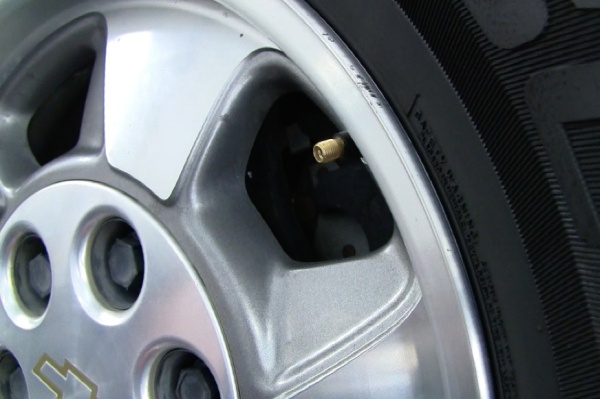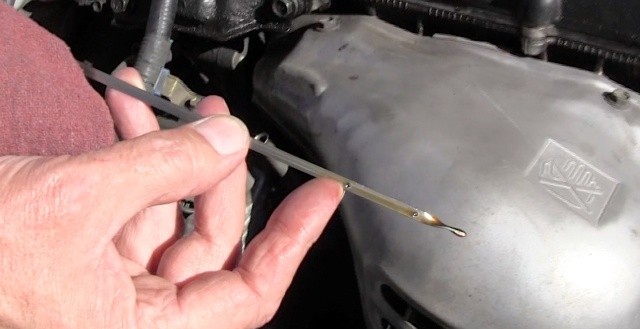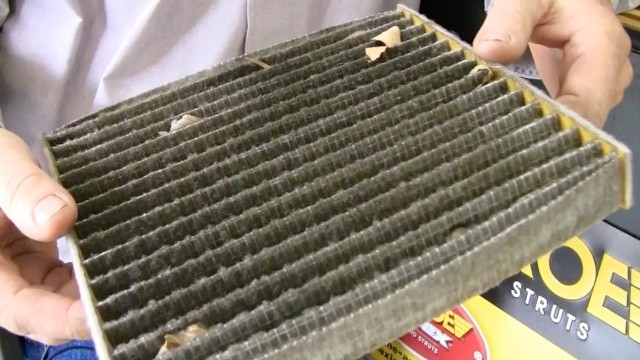
While easily overlooked, vehicle maintenance steps like monitoring tire pressure can have a considerable impact. Photo: American Ratings Corporation (2015)
With the hustle and bustle of everyday life, it’s not surprising that our vehicles often get taken for granted. However, considering the vital role they play in our daily routines, ongoing vehicle maintenance should be a top priority. Fortunately, most aspects of maintenance are fairly simple and, in many cases, can be performed independently. Take a minute to review these car care tips from five Diamond Certified Expert Contributors.
1. Tire maintenance: Walee Gon of Faxon Garage
When a vehicle’s tires are under-inflated, it leads to increases in fuel usage, braking distance and tread wear. That’s why you should regularly monitor your tires’ inflation levels using a hand-held tire pressure gauge.When inflating tires, follow the manufacturer-recommended inflation level (PSI) rather than what’s printed on the tires themselves. The correct PSI can be found on your driver’s side door jamb and in your owner’s manual. Besides maintaining proper inflation, have your tires rotated every 10,000 miles to ensure even wear.
2. Engine air filter replacement: Wayne Pentecost of Wayne & Son’s Automotive Repair, LLC
When an air filter isn’t regularly replaced, the excessive dirt buildup can cause it to become clogged, which restricts engine ventilation. When an engine isn’t able to “breathe” properly, it’s more likely to run rich, which means it uses more gasoline than it’s supposed to. To avoid this, periodically check the condition of your engine air filter and replace it as needed.

With the continued expansion of oil change intervals, it’s especially crucial for vehicle owners to keep an eye on fluid levels. Photo: Olsen’s Automotive Repair (2015)
3. Monitoring engine oil: Frank Walsh of William Michael Automotive
With the growing sophistication of both engines and oil products, recommended oil change intervals are continually expanding. While this is ostensibly beneficial, it poses a risk for less-than-conscientious vehicle owners. More and more, auto technicians are seeing cars come into their shops with dangerously low oil levels, due to owners driving thousands miles without giving a second thought to checking and replenishing fluids. So, remember to periodically check your oil between services and add to it as needed.
4. On-the-road visibility: Joel Ramos Diaz of American Canyon Collision Center
While often overlooked, visibility is vital to ensure safety while driving. Since headlight lenses can get “cloudy” as their UV coating breaks down, be sure to have yours polished and the UV coating reapplied periodically. Windshields with large cracks should be replaced as soon as possible, especially if a crack directly obstructs your visibility (this can also earn you a ticket). Also, replace windshield wipers regularly, as their performance starts to diminish with increased wear.

When a cabin air filter becomes excessively dirty, it can have the opposite of its intended effect. Photo: ASAP Automotive, Inc. (2015)
5. Cabin air filter replacement: Ron McLeod of ASAP Automotive, Inc.
Designed to filter out elements like dust and pollen, a cabin air filter provides clean air for a vehicle’s driver and passengers. However, many people don’t even know what a cabin filter is, which is why the filters in some vehicles never get changed. In this case, the filter can become inundated with dirt and grime, and it can even accumulate mold, which causes it to have the opposite of its intended effect. To avoid compromising air quality in your vehicle, have your cabin filter changed every 15,000 miles, as per manufacturer recommendations.
4 Responses
Leave a Reply
You must be logged in to post a comment.

Regarding the point about monitoring engine oil, I completely agree. Recently I noticed a slow oil leak under my car, so I took it to my Diamond Certified mechanic. He pointed out that I hadn’t brought the car in for an oil change in more than 12K miles! Once he serviced the car and changed the oil and filter, I no longer had oil leaking onto my driveway. I used to be so conscientious when I first owned cars, checking the oil regularly and getting oil changes every 3 to 5K miles. It’s time to pay closer attention to maintenance so I don’t ruin the engine. Thanks for the reminder.
This is good advice, I need to be more proactive in checking the pressure in my tyres. I do know that driving style and speed has an effect on tyre life as well as gas mileage. If you’re speeding and having to stop frequently, it can wear down the tires and waste gas. It’s just smarter overall to drive the speed limit and slow down in preparation for a red light or stop sign. Thanks for sharing!
Monitoring the engine oil in your car seems to be a very important point to make sure that it’s running properly. Like the car owners mentioned in this article who don’t check their fluids after driving a certain number of miles, I also don’t think about checking on my car fluids when driving my car. I’ve had to take my car in for repairs because I always forget to refill my engine oil, so I need to start doing that to maintain my car. Thanks for the information!
Thanks for the tips! It seems like I’ve been going through my tires really quickly lately, so it seems like I could use some advice on what to do to maintain them better. I know that under-inflated tires can cause a blowout, but I didn’t know that they could also cause excess tread wear. I’m not sure if my tires are over-inflated or under-inflated, but it seems like I should find that out so that I can keep the air levels in my tires just right to reduce tread wear.